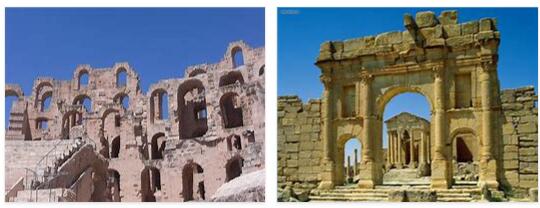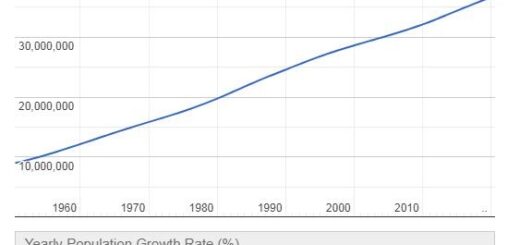Tunisia History
In 1980, the now unpopular Nouira was replaced as Burghiba’s prime minister and successor by Mohamed Mzali (1925-2010). In 1982, following the Israeli invasion of southern Lebanon, the PLO moved its headquarters from Beirut to Tunis, but the October 1985 raid on Yasir Arafat’s Tunisian residence by Israeli aircraft forced the PLO to transfer its staff elsewhere. In July 1986 the premier Mzali was sacked by an 80-year-old Burghiba, more than ever determined to take back the reins of power after a three-year period of relative eclipse. With the appointment of the pro-Western Rachid Sfar, the old leader closed with the pan-Arab and fundamentalist sectors of Tunisia by clearly choosing the West. In November 1987, Prime Minister Zin al-Abdin Ben Ali he deposed Burghiba, declaring him incapable of governing due to his precarious health conditions, and assumed the presidency of the Republic. Some of the pre-existing state structures were dismantled, with the transformation of Destour into a Democratic Constitutional Group (February 1988), and formal concessions made to a certain liberalization, in April 1989 Ben Ali was then confirmed with the elections to the presidency of the Republic. The presidential elections of March 1994 also saw a plebiscite victory (99.9% of the votes) by Ben Ali.
Despite the country’s desire for democratization, the new government, blocked by the contradictions of Tunisian society, nevertheless manifested an authoritarianism not very different from that of the previous regime, until it passed in 1992 a very restrictive law on association rights. In the meantime, international relations saw an alternating trend in relations with the United States (which worsened during the Gulf War) and above all an improvement in those with neighboring countries. The elections of October 1999, the first multi-party, reconfirmed, with very broad consensus, President Ben Ali for a third term. Burghiba’s death in 2000 brought political leaders from Europe and Arab countries to Tunisia. Although the constitution limited the presidency to three terms of government of five years each, in September 2001 Ben Ali was chosen as the presidential candidate and, through the approval of a constitutional referendum that brought the limit of presidential terms from three to five (2002), was reconfirmed with a very large majority in the 2004 and 2009 elections. Arab spring); after an extreme attempt to calm the protests, announcing reforms and granting power to the opposition, the president left the country and power was temporarily assumed by the president of the parliament Fouad Mebazaa. In early 2012, a new transitional government was established, led by Beji Caid el Sebsi, while a court issued an international arrest warrant against the former president and his wife. In October elections were held to form a constituent assembly, won by the Islamist party Ennahda, led by Rachid Ghannouchi.
According to loverists, the parties of the ruling coalition appointed Moncef Marzouki as head of state and Hamadi Jebali as prime minister. In June, groups of Salafists caused unrest in various parts of the country. In January 2014 he became Prime Minister Mehdi Jomaa, while in October the legislative elections were held, won by the secular party Nida ‘Tunus. In December Beji Caid Essebsi became president, winning the presidential elections against the outgoing president. In March 2015, a group of Islamist terrorists attacked a group of tourists inside and outside the Bardo museum in Tunis, causing several victims; the same thing happened in June in the tourist resort of Sousse, where several foreign tourists died following a terrorist attack. In October 2015 a series of organizations (Quartet of Dialogue, united since 2013) committed to the development of peace in the country, won the Nobel Peace Prize. In January 2015, President Essebsi instructed H. Essid to form the new government. The Essid government, however, was unable to face the economic crisis and implement the required reforms, and in August it lost the confidence of Parliament. A national unity government was then formed, led by Y. Al-Shahed. Not even al Shahed proved capable of resolving the economic crisis and between 2017 and 2018 many protests broke out in the country, repressed by the government also with the use of force. In 2018 the municipal elections saw for the first time in the history of the country the election of a woman, in the figure of S. Abderrahim who became mayor of Tunis. In June 2019, Parliament approved changes to the electoral law that did not allow non-traditional political forces to participate in the presidential elections scheduled for the following October. President Essebsi died in July 2019 and M. Ennaceur took his place ad interim. In the presidential elections in October, the independent candidate Kais Saied was successful. H. Jemli, exponent of the moderate Islamist party Ennhada, was elected premier in the same month. In January 2020, Jemli lost the confidence of the government and in the following March E. Fakhfakh became premier.



